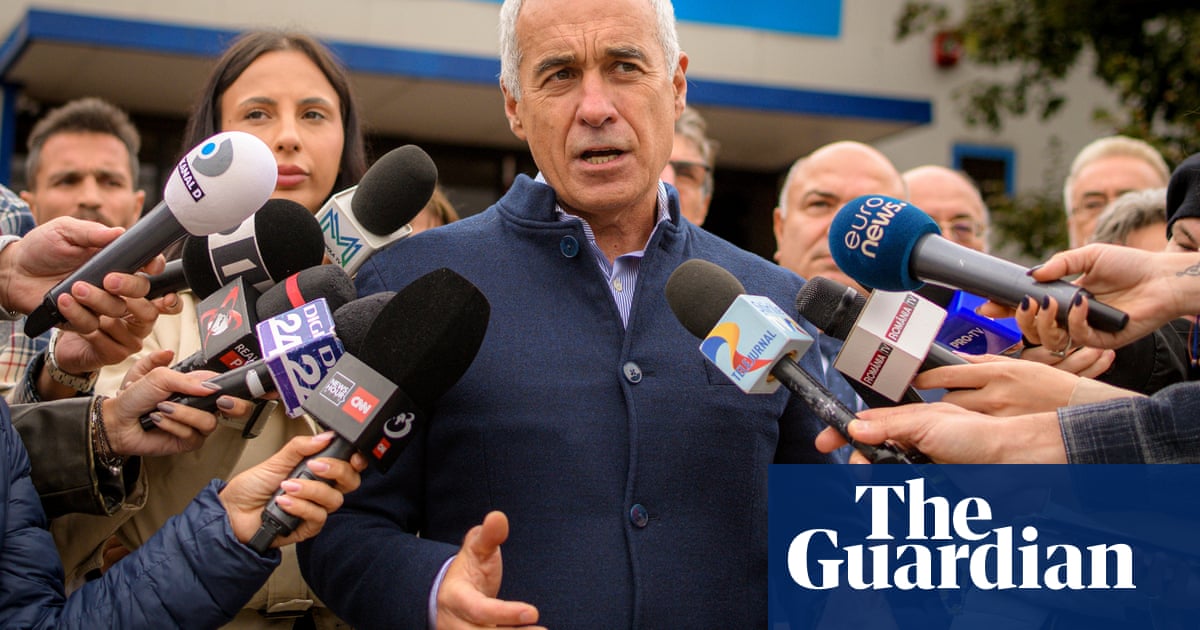Summary
Far-right populist Calin Georgescu led Romania’s presidential election with 22% of the vote, narrowly ahead of leftist Prime Minister Marcel Ciolacu (21%), setting up a runoff on December 8.
Georgescu’s unexpected rise, driven by anti-establishment sentiment, has disrupted the political landscape.
His vague populist platform includes boosting local production and criticizing NATO. Analysts suggest his surge reflects voter dissatisfaction, with some suspecting potential Russian influence.
The election, marked by moderate turnout (52.4%), occurs amid economic challenges, high inflation, and tensions from Romania’s proximity to Ukraine’s war zone.



Just my two cents, as a Romanian (or half Romanian, half German) living abroad, with family members that voted for this far-right candidate, both in Romania and from abroad:
Romania suffers from the same problem many other European countries suffer from. The status quo parties haven’t come to the realization that they need to change their course if they want to stay relevant, either willingly, because changing political course would hurt their financial interests, or unwillingly, because they’re too dense to understand what the people want.
The economic situation is dire. Over 3 million Romanians (out of ~20 million) live abroad, most of them due to the dire economic situation at home (as is the case with a big chunk of my own family). These are not doctors, engineers, or other people with a ton of degrees hanging on their walls, but normal laborers that moved abroad in the pursuit of a better life. They often get exploited and discriminated, due to their lack of education, language skills, and other factors. One question I get asked very often about by my relatives in Romania is “but when are you moving back home?” and “but aren’t the people there really shitty to you?”. Most of these people dream about saving enough money so they can move back “home” (which in turn is also quite hard given the dire economic situation they face and the very insignificant amounts of money they can save in western Europe).
The status quo parties keep failing to deliver on their promises, with one corruption scandal after the other. The improvements are moving very, very slowly, and people are getting fed up. I’ll quote Milton Friedman on this one (someone that I, as a communist, very often do not agree with):
“Only a crisis - actual or perceived - produces real change. When that crisis occurs, the actions that are taken depend on the ideas that are lying around. That, I believe, is our basic function: to develop alternatives to existing policies, to keep them alive and available until the politically impossible becomes the politically inevitable.”
People are looking for alternatives, and the only alternatives lying around are far-right reactionaries, often because their campaigns are getting funded by Moscow, capitalist think tanks, and other actors that want to change the course of our politics.
The classical parties have failed the average person. Doing a Kamala and just campaigning on keeping the status quo won’t win you an election there, because the status quo sucks.
The capital has exploited and hollowed out the individual, and now the individual is striking back by choosing the most reactionary “opposition” candidate they can put their stamp on.
The anti-EU (and anti-NATO since they’re very closely associated) rhetoric is only helped by the huge wave of xenophobia these people face from foreigners either while abroad or online. We know that we don’t have the best reputation abroad, and this insecurity is well drilled into our heads.
Now to get back to Georgescu, I won’t deny it that it is indeed very weird how this guy appeared out of nowhere. I’m fairly sure Moscow had its money in there somewhere, but that only launched him into the public consciousness. The reason people voted for him isn’t because he got big on TikTok, but because he presented himself as an outsider and he spoke directly to people’s insecurities and anger.
Romania sadly has no leftist parties, nor any leftist candidates. The only “leftists” are somewhat progressive neoliberals that fight to keep the status quo alive (or sometimes make it even worse with their proposed austerity measures). That obviously doesn’t speak to the average person’s insecurities. That’s how this guy got so big, and that’s how many more after him will get big if no candidate with actual solutions shows up.